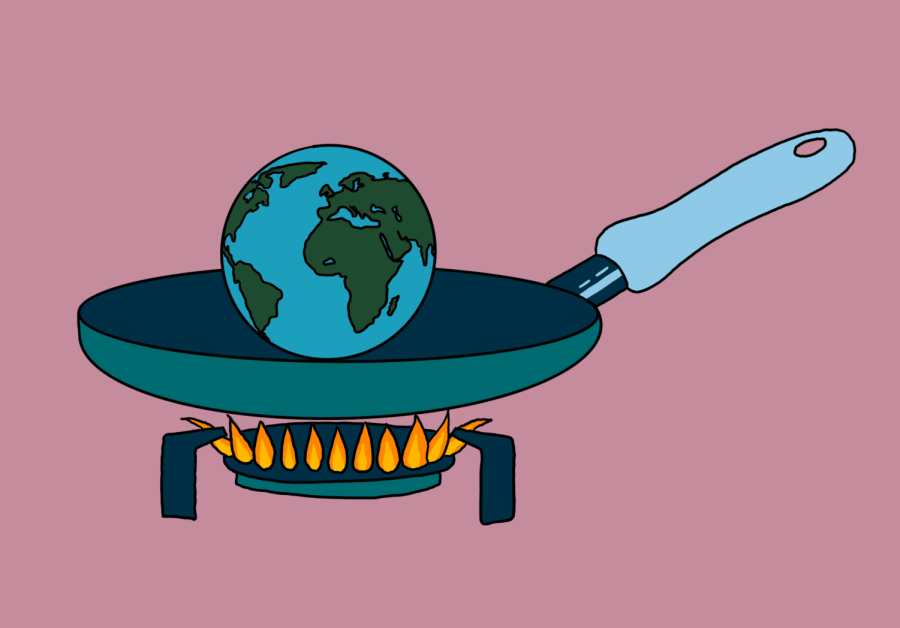In service to the long-term goal to phase out fossil fuels, new policy proposals about banning gas-powered appliances in homes are coming out, and deserve some of the ire they have attracted.
Late last year, news of possible bans on gas stoves in home kitchens was circulating. The word at the time was that the Consumer Product Safety Commission (CPSC) might take some regulatory action in the face of growing research linking gas stoves to pollutants that harm human health and the environment. There were plenty of negative reactions to this, citing varied reasons from personal preference to government overreach.
Early in the new year, the CPSC backed off of the idea, and White House officials also said they were not going to ban gas stoves. But now, there is a new regulation up for consideration from the Department of Energy (DOE) regarding regulations on efficiency of gas appliances.
In theory, encouraging energy efficiency is a workable compromise that could be more widely accepted if the benefits are large enough.
In this case, however, it appears government actors are side-stepping the direct path, choosing instead to attack the problem through regulatory channels because the policy was so unpopular when floated late last year. Even worse, the proposed regulations would do almost nothing for climate change or consumers.
The DOE said the purpose of the regulations is to reduce energy consumption and save consumers money. But these benefits are meager at best. The department estimates a reduction in energy use by a mere 3.4% from current levels, and consumers on average would save $21.89 over a cooktop’s lifetime.
I would be willing to bet most consumers would be willing to absorb the $21.89 in cost over the lifetime of their stove, especially as stoves tend to have quite long lives if maintained properly.
Despite the DOE’s stated goal of saving consumers money, it seems possible this regulation could pass more costs onto consumers.
A spokesperson for the Association of Home Appliance Manufacturers told the Wall Street Journal in February that gas cooktops would have to be completely redesigned to comply with the new DOE regulations.
The costs of switching to these compliant stoves would be passed on to consumers through increased prices because manufacturers would need to recoup the multi-million dollar cost of redesigning stoves, the Wall Street Journal reported.
Aside from manufacturing and replacement costs, electrical infrastructure needs updating to support this shift.
If the U.S. were to phase out gas as an energy supply to homes now, the electric grid would not be prepared to pick up the slack. This step cannot feasibly be taken until the electric grids are better supported.
Another issue that arises is the fact that electric grids are often partially supported by coal, which means drawing more electric power would make us more reliant on burning coal. Instead, there need to be changes to energy sourcing such that electric grids can be fully supported by low- to no-carbon sources if the switch away from fossil fuels is really going to work.
Rather than strangling consumer choice and implementing costly regulations with few benefits, the government should focus on supporting innovation in energy production and infrastructure. Plus, focusing on energy infrastructure and innovation is much more in line with the government’s job description than micromanaging home appliances.
Alternatively, there are other opponents to gas stoves that cite health concerns from emissions due to burning gas in an enclosed space and affecting air quality inside homes. While this is a valid concern, it is also asking folks to give up a lot for very little perceived benefit.
Sure, warn consumers that gas stoves can pose a health risk through air quality, but ultimately, consumers should have the ability to assess the risk to themselves. Many people looking to hold on to their gas stoves for eternity are also the types of people who cook at home from scratch and use lots of fresh, unprocessed foods in their diets, which mitigates a whole host of health risks as compared to processed or mass-prepared foods.
While many can easily get behind regulations meant to make home air quality safer, consumers should also know that plastic and non-stick surfaces and cookware pose a threat.
Additionally, the scientific links between gas stoves and health risks like childhood asthma are a bit on the tenuous and out-of-date side, sparking skepticism about whether this change would be a health benefit at all. To opponents of this change, there seems to be little obvious benefit, while likely resulting in increased costs and dumping of refuse into landfills, ultimately contributing to pollution through a different route.
In the end, it all brings us back to where the greatest benefit for the smallest cost lies. It appears encouraging people to cook fresh foods at home rather than telling them to be afraid of their stoves is the better course of action until innovation in energy production brings us to a place where we can zero in on these smaller sources of emissions.
Would you like Allison to follow up on this topic or explore something specific? Contact her at [email protected] with questions, comments or story ideas.

















Dover135
Apr 10, 2023 at 9:18 am
Gas stoves also have less electronic components, so they last longer. You are going to replace your electric stove multiple times because of faulty control panels or wiring before you need a new gas one.